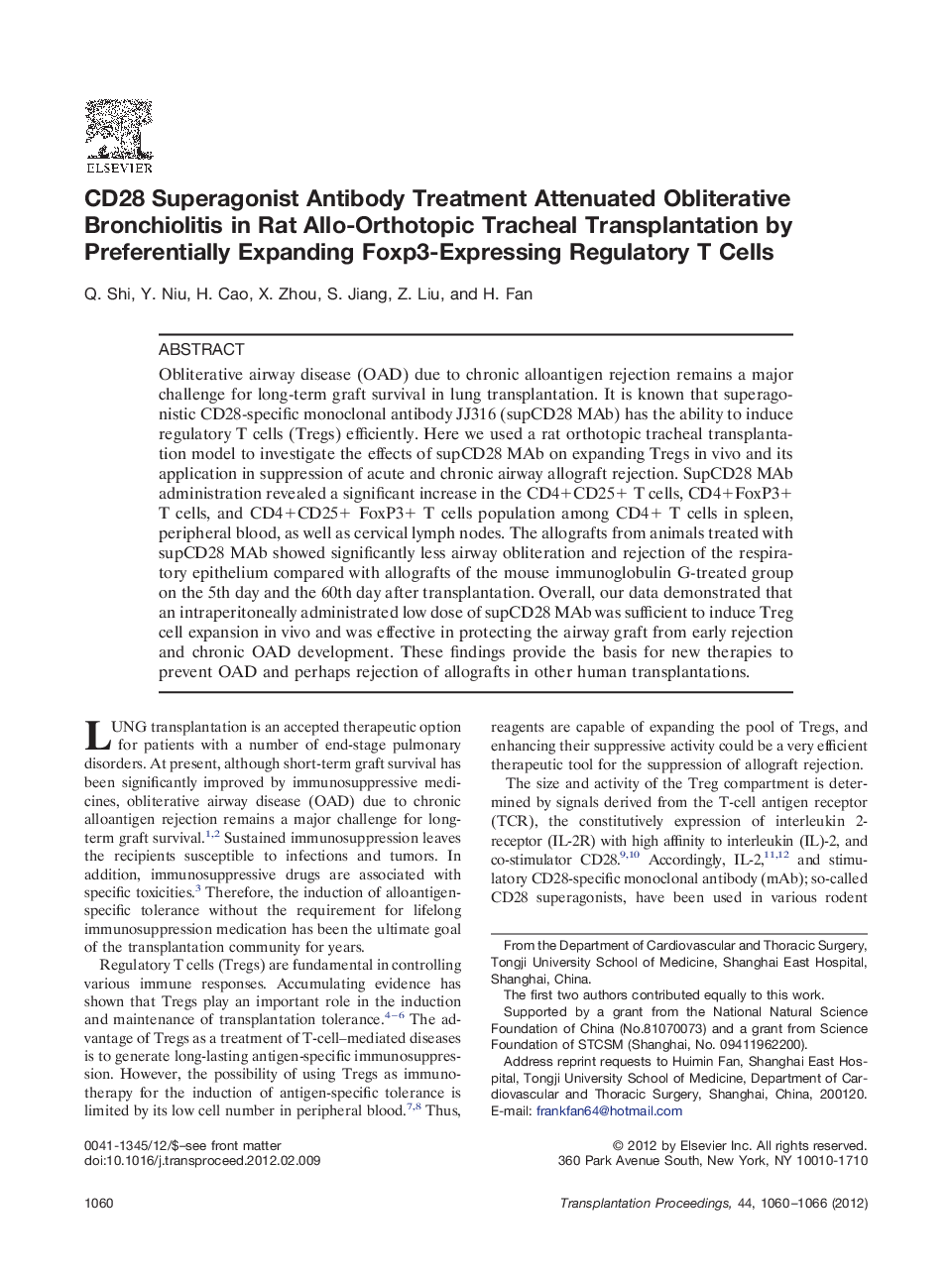| Article ID | Journal | Published Year | Pages | File Type |
|---|---|---|---|---|
| 4256863 | Transplantation Proceedings | 2012 | 7 Pages |
Obliterative airway disease (OAD) due to chronic alloantigen rejection remains a major challenge for long-term graft survival in lung transplantation. It is known that superagonistic CD28-specific monoclonal antibody JJ316 (supCD28 MAb) has the ability to induce regulatory T cells (Tregs) efficiently. Here we used a rat orthotopic tracheal transplantation model to investigate the effects of supCD28 MAb on expanding Tregs in vivo and its application in suppression of acute and chronic airway allograft rejection. SupCD28 MAb administration revealed a significant increase in the CD4+CD25+ T cells, CD4+FoxP3+ T cells, and CD4+CD25+ FoxP3+ T cells population among CD4+ T cells in spleen, peripheral blood, as well as cervical lymph nodes. The allografts from animals treated with supCD28 MAb showed significantly less airway obliteration and rejection of the respiratory epithelium compared with allografts of the mouse immunoglobulin G-treated group on the 5th day and the 60th day after transplantation. Overall, our data demonstrated that an intraperitoneally administrated low dose of supCD28 MAb was sufficient to induce Treg cell expansion in vivo and was effective in protecting the airway graft from early rejection and chronic OAD development. These findings provide the basis for new therapies to prevent OAD and perhaps rejection of allografts in other human transplantations.
